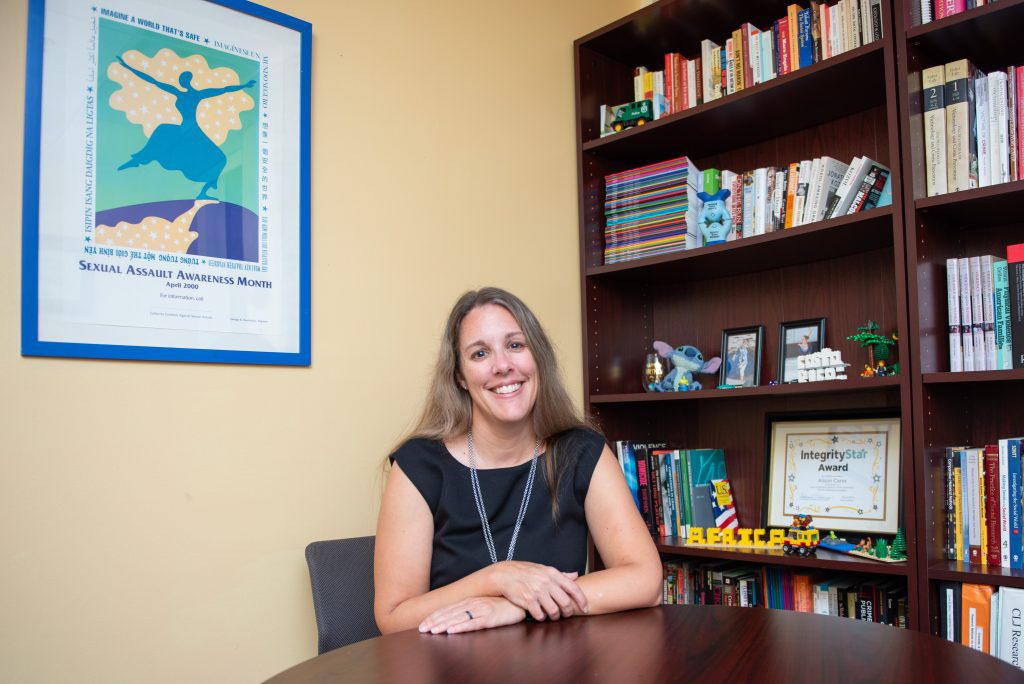Sociology Expertise Strengthens Campus Safety Initiatives

Parking at night is a simple but powerful illustration Associate Professor Alison Cares, Ph.D., uses to teach gendered experiences with violence and victimization.
Routes through campus after hours are typically dictated by lighting, exits and number of people in an area — and often preplanned by women and non-gender confirming people. If men consider these factors it’s often in the context of women in their life, she said.
At a higher level, it’s an introduction to how sociologists can bring expert insight to the campus boards and policymakers who develop safety standards in higher education. Feeling safe should be considered as another factor in influencing student success, alongside more well-known factors like financial aid, tutoring and extracurricular activities, Cares said.
“The college community is my community,” said Cares, who researches and teaches about sexual violence. “So we don’t just collect data. We use it to inform and affect change.”
One way she does that is through a project called Life Happens, one of 32 projects jointly funded by the Office of the Provost and the Office of Research in 2022. Life Happens blends the expertise of Cares and Psychology Associate Professor Amie Newins, Ph.D., and Social Work Professor Kim Anderson, Ph.D., to understand how the broad context of student lives is related to their academic success.
Survey responses from a sample of 500 students revealed barriers and positive pathways to success, from approaches to learning in a post-pandemic environment to alcohol use. Responses were matched against academic records to gauge how GPAs and dropout rates corresponded with issues ranging from sexual violence to COVID to car accidents.
A finished report with results is still forthcoming while the Life Happens team sifts through the data, but overall Cares is impressed by student resiliency. While they’ve recorded multiple hardships and traumas from students, students are also empowering themselves.
“It’s a lot of listening to understand what they need from us. What’s really going on for students and how can we help them do well?” Cares said.
